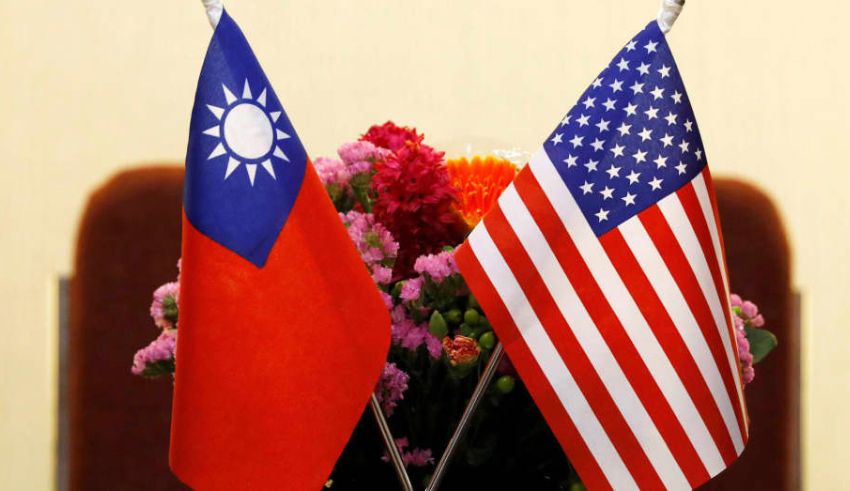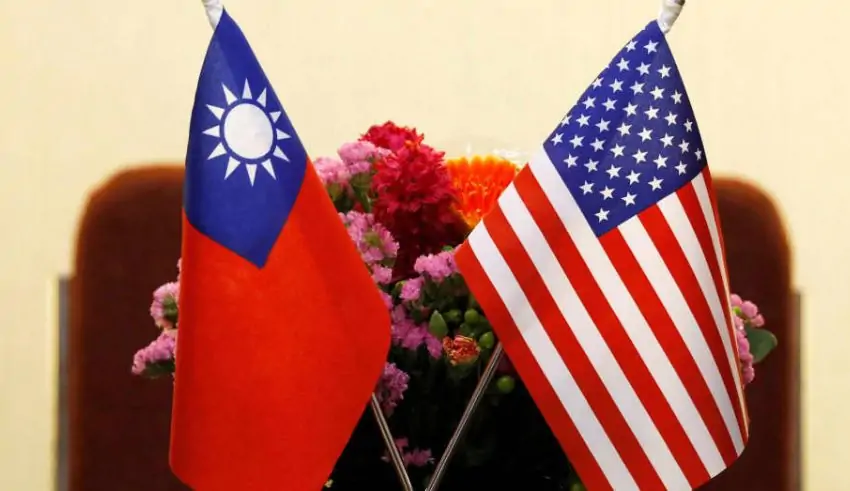

(C) CNBC
In a discreet maneuver that might have gone unnoticed by many, the US quietly allocated an $80 million grant to Taiwan for the acquisition of military equipment, eliciting an expected wave of disapproval from China. On the surface, $80 million may not seem like a staggering amount, considering Taiwan’s existing multibillion-dollar portfolio of US military acquisitions. However, beneath the surface, a profound shift in dynamics is taking place.
What sets this grant apart is its origin – American taxpayers. For over 40 years, the US has refrained from directly utilizing its funds to support a nation it does not formally recognize. This groundbreaking move is made possible through the Foreign Military Finance (FMF) program, which, up until now, was reserved exclusively for entities acknowledged by the United Nations. Taiwan, excluded from this list, now finds itself in the spotlight.
The conventional approach of “strategic ambiguity” is showing its limitations, particularly with China’s ever-advancing military prowess across the Taiwan Strait. While Washington officially claims its policy remains unchanged, actions speak louder. The urgency to reinforce Taiwan’s defense capabilities is undeniable, and the $80 million can be seen as merely the tip of the iceberg.
Intriguingly, the US is engaging in a substantial effort to retrain Taiwan’s army and is embracing a “fortress Taiwan” strategy. The focus is shifting to ground troops, infantry, and artillery, signaling a significant role reversal in which Taiwan’s obsolete army is expected to play a central part.
Lessons from the conflict in Ukraine serve as a stark reminder of the need for adaptation. The prominence of artillery in modern warfare has raised questions about Taiwan’s preparedness. With artillery troops equipped with Vietnam War-era weaponry, the island faces a daunting challenge. This vulnerability has prodded Washington into action, which includes sending Taiwanese ground troops to the US for training and embedding US trainers with Taiwan’s marines and special forces.
Taiwan’s quest for international support is imperative, given the monumental challenge of deterring China on its own. Recent regional dynamics, spurred by China’s assertiveness in the South and East China Seas, are reshaping alliances. The relevance of Taiwan’s security is no longer confined to its immediate vicinity but interlinked with broader geopolitical developments.
The debate in Washington centers on the extent to which the US should extend its support to Taiwan while treading carefully to maintain strategic ambiguity. In an intricate geopolitical landscape, the security of Taiwan has become intricately entwined with complex regional dynamics, demanding a delicate balancing act from Washington as it navigates its commitment to Taiwan.
Established in the year 1921 and it still continues to showcase the legacy of this game through generations. This ‘Emperor’s…
The NBA Playoffs of 2025 would have much perdition during the matches of the second round. In the East, the…
Jimmy O.Yang, the Asian standup comedian established his name in the international stage and he is more popular among the…
Bill Gates of the Bill & Melinda Gates Foundation declared during the Philanthropy Asia Summit on May 5, 2025 that…
The game changer of the Netflix streaming is the South Korean nail biting survival thriller web series “Squid Game” and…
BLACKPINK is planning their fourth concert tour across the globe and their brand-new album for release in 2025. Member Lisa…
This website uses cookies.
Read More